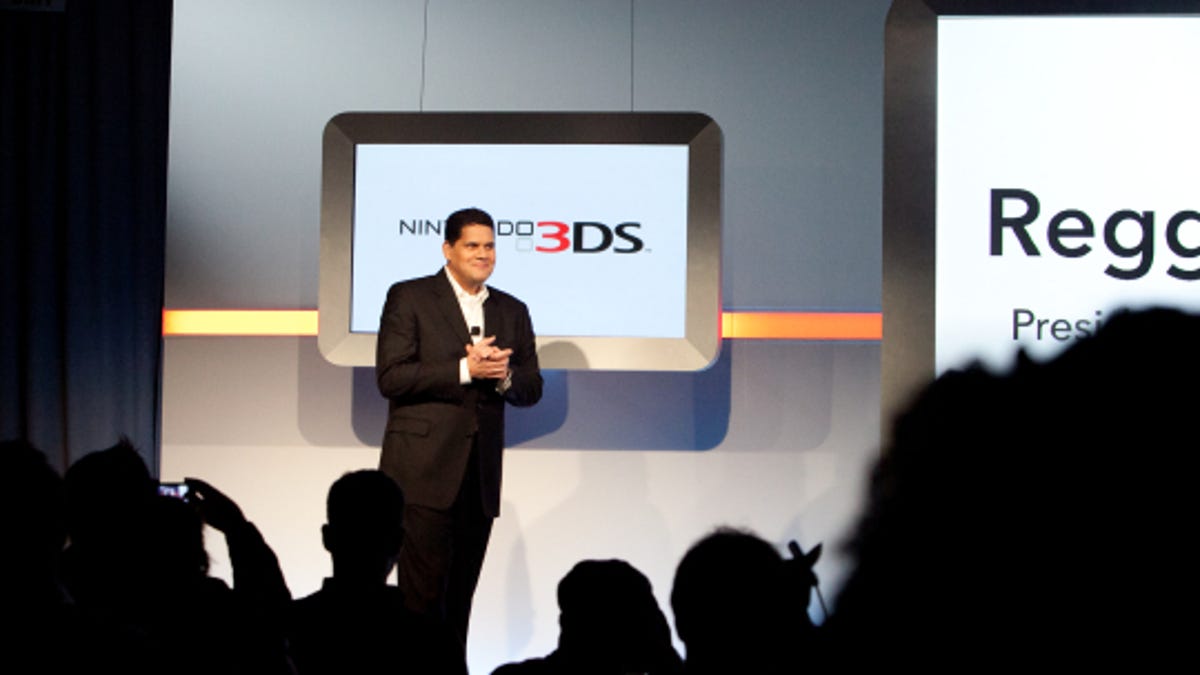Nintendo won't work with 'garage developers'
Nintendo of America President Reggie Fils-Aime says that his company has no interest in working with so-called "garage developers." But how do developers feel about Nintendo?

Nintendo has no desire to work with so-called "garage developers," Nintendo of America President Reggie Fils-Aime said in an interview published today.
"I would separate out the true independent developer vs. the hobbyist," Fils-Aime told gaming publication Gamasutra. "We are absolutely reaching out to the independent developer. Where we've drawn the line is we are not looking to do business today with the garage developer. In our view, that's not a business we want to pursue."
A "garage developer" is someone developing a casual title without the team and cash that goes along with being a more established game developer. The title, however, might be considered a badge of honor in the mobile-development space, considering the success some former garage developers enjoyed.
By definition, Angry Birds creator Rovio started as a garage developer. Now, that company's title has been downloaded over 100 million times and it has over 40 million active users around the world making it one of the most popular video games ever released.
Even so, Fils-Aime told Gamasutra that garage developers can be likened to "amateur musicians." Nintendo would seemingly rather work with more established companies that focus all their efforts on game development.
But are more established developers happy working with Nintendo?
In an interview with IndustryGamers in December, EA CEO John Riccitiello took aim at Nintendo, saying that the company does "less to promote third-party content" than first-party titles.
"I can come up with a dozen titles in the last decade, but it's really tough to come up with a dozen great titles that have been platform-defining for them that weren't their own," Riccitiello told IndustryGamers. "I don't care whether it's 'Mario' or 'Twilight Princess' or 'GoldenEye,' it was their own content. I'm going back to [Nintendo 64], and I can go back to [Super Nintendo Entertainment System] if you want, but they've never really been a heavy third-party supporting system.
"It's not lack of trying," Riccitiello went on to say. "They start the morning thinking what's best for their own intellectual property."
Third-party developers have faced difficulty getting their games to sell well on Nintendo platforms.
In January, Nintendo chief Satoru Iwata showed a list of the top-selling games in the U.S. last year during a company earnings call. Out of the top 20 titles, 11 were available on the Wii or DS. And out of those, just two were developed by a third-party studio. It was a similar story elsewhere around the world. All seven of the top Wii games released in Japan last year were developed by Nintendo. Three of the five bestselling DS games in Japan came from the game company, as well.
It's an issue developers have been facing for years. In 2009, Riccitiello said during his company's earnings call with investors that "the Wii platform has been a little weaker than we had originally anticipated." He went on to tell investors that "very, very few multiplatform titles are succeeding on the Wii so far."

